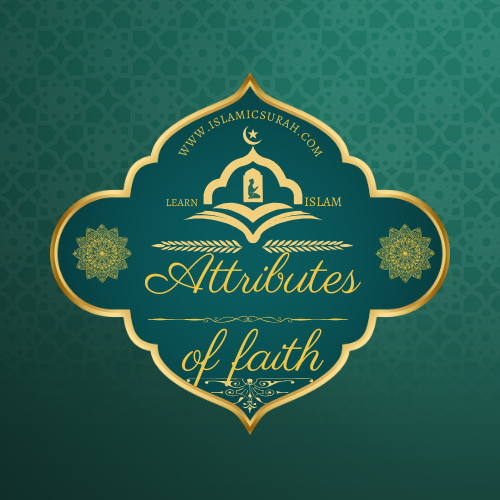Belief in Allah is the first pillar of Faith (Imaan) in Islam. As Muslims, we believe in Allah according to beautiful names of Allah and attributes. Allah has revealed His names repeatedly in the Holy Quran to help us understand who He is. Learning and memorizing the Asma ul Husna will guide us in understanding the correct way to believe in Him.
What is Asma ul Husna meaning?
There is nothing more sacred and blessed than understanding the names of Allah and living by them. How can we expect to worship, love, fear, and trust our Lord, the Almighty Allah, if we do not know who He is?The 99 names of Allah also known as Asma ul Husna represent a mosaic of His infinite attributes. Besides, each name reflects a unique attribute of the Creator (Allah Almighty) that resonates with the human experience. These names are not just titles; but they are descriptions of Allah’s authority in the world and His relationship with creation. In the Quran, Allah reveals Himself through these names, establishing a foundation for love and understanding.

References in the Qur’an
وَ لِلّٰهِ الْاَسْمَآءُ الْحُسْنٰى فَادْعُوْهُ بِهَا۪-وَ ذَرُوا الَّذِیْنَ یُلْحِدُوْنَ فِیْۤ اَسْمَآىٕهٖؕ
And to Allah belong the most beautiful names, so call upon Him by them. (Quran 7:180)
اَللّٰهُ لَاۤ اِلٰهَ اِلَّا هُوَؕ-لَهُ الْاَسْمَآءُ الْحُسْنٰى
Allah, there is no one to be worshiped except Him, to Him belong all the good names. (Quran 20:8)
هُوَ اللّٰهُ الْخَالِقُ الْبَارِئُ الْمُصَوِّرُ لَهُ الْاَسْمَآءُ الْحُسْنٰىؕ-یُسَبِّحُ لَهٗ مَا فِی السَّمٰوٰتِ وَ الْاَرْضِۚ-وَ هُوَ الْعَزِیْزُ الْحَكِیْمُ(24)
He is Allah, the Maker, the Creator, the Shaper of everyone, to Him belong all the good names, to Him speaks the glory of whatever is in the heavens and the earth, and He is the Honorable and the Wise. (Quran 59:24)
What are the 99 Names of Allah?
| # | Name | Transliteration | Meaning |
| 1 | الرَّحْمَنُ | Ar Rahman | The Most Gracious |
| 2 | الرَّحِيمُ | Ar Raheem | The Merciful |
| 3 | الْمَلِكُ | Al Malik | The King, Absolute Ruler |
| 4 | الْقُدُّوسُ | Al Quddus | The Absolutely One |
| 5 | السَّلاَمُ | As Salam | The Giver of Peace |
| 6 | الْمُؤْمِنُ | Al Mu’min | The Giver of Faith and Security |
| 7 | الْمُهَيْمِنُ | Al Muhaymin | The Guardian |
| 8 | الْعَزِيزُ | Al Aziz | The Conqueror |
| 9 | الْجَبَّارُ | Al Jabbar | The Forceful, Powerful |
| 10 | الْمُتَكَبِّرُ | Al Mutakabbir | The Greatest |
| 11 | الْخَالِقُ | Al Khaliq | The Creator |
| 12 | الْبَارِئُ | Al-Bari’ | The Originator |
| 13 | الْمُصَوِّرُ | Al Musawwir | The Shaper |
| 14 | الْغَفَّارُ | Al Ghaffar | The Forgiving |
| 15 | الْقَهَّارُ | Al Qahhar | The Subduer |
| 16 | الْوَهَّابُ | Al Wahhab | The Giver |
| 17 | الرَّزَّاقُ | Ar Razzaq | The Sustainer |
| 18 | الْفَتَّاحُ | Al Fattah | The Opener |
| 19 | اَلْعَلِيْمُ | Al Alim | The Knower of All |
| 20 | الْقَابِضُ | Al Qabid | The Withholder, Constrictor |
| 21 | الْبَاسِطُ | Al Basit | The Extender |
| 22 | الْخَافِضُ | Al Khafid | The Abaser, Reducer |
| 23 | الرَّافِعُ | Ar Rafi | The Elevator, Exalter |
| 24 | الْمُعِزُّ | Al Mu’izz | The Bestower |
| 25 | المُذِلُّ | Al Mudhill | The Dishonourer |
| 26 | السَّمِيعُ | As Sami | The Hearer |
| 27 | الْبَصِيرُ | Al Baseer | The Seer |
| 28 | الْحَكَمُ | Al Hakam | The Judge |
| 29 | الْعَدْلُ | Al ‘Adl | The Just |
| 30 | اللَّطِيفُ | Al Latif | The Most Subtle |
| 31 | الْخَبِيرُ | Al Khabir | The All Aware |
| 32 | الْحَلِيمُ | Al Halim | The Forbearing |
| 33 | الْعَظِيمُ | Al Azim | The Supreme |
| 34 | الْغَفُورُ | Al Ghafur | The Hider of Faults |
| 35 | الشَّكُورُ | Ash Shakur | The One Who Rewards Gratitude |
| 36 | الْعَلِيُّ | Al Ali | The Highest |
| 37 | الْكَبِيرُ | Al Kabeer | The Greatest |
| 38 | الْحَفِيظُ | Al Hafeez | The Preserver |
| 39 | الْمُقِيتُ | Al Muqit | The Provider |
| 40 | الْحسِيبُ | Al Haseeb | The Accountant |
| 41 | الْجَلِيلُ | Al Jaleel | The Grand |
| 42 | الْكَرِيمُ | Al Kareem | The Most Generous |
| 43 | الرَّقِيبُ | Ar Raqeeb | The Vigilant One |
| 44 | الْمُجِيبُ | Al Mujeeb | The Answerer of Prayers |
| 45 | الْوَاسِعُ | Al Waasi’ | The Infinite |
| 46 | الْحَكِيمُ | Al Hakeem | The Utterly Wise |
| 47 | الْوَدُودُ | Al wadood | The Supreme Loving |
| 48 | الْمَجِيدُ | Al Majeed | The Honourable |
| 49 | الْبَاعِثُ | Al Ba’ith | The Reviver |
| 50 | الشَّهِيدُ | Ash Shaheed | The Ever-Watchful |
| 51 | الْحَقُّ | Al Haqq | The Ultimate Truth |
| 52 | الْوَكِيلُ | Al Wakeel | The Trustee |
| 53 | الْقَوِيُّ | Al Qawiyy | The All-Powerful |
| 54 | الْمَتِينُ | Al Mateen | The Steadfast One |
| 55 | الْوَلِيُّ | Al Waliyy | The Guardian |
| 56 | الْحَمِيدُ | Al Hameed | The Commendable |
| 57 | الْمُحْصِي | Al Muhsee | The Enumerator |
| 58 | الْمُبْدِئُ | Al Mubdi | The Originator |
| 59 | الْمُعِيدُ | Al Mu’id | The Restorer |
| 60 | الْمُحْيِي | Al Muhyee | The Giver of Life |
| 61 | اَلْمُمِيتُ | Al Mumeet | The Bringer of Death |
| 62 | الْحَيُّ | Al Hayy | The Eternal,Ever Living One |
| 63 | الْقَيُّومُ | Al Qayyum | The Self-Sustaining |
| 64 | الْوَاجِدُ | Al Wajid | The Discoverer |
| 65 | الْمَاجِدُ | Al Wajid | The Majestic |
| 66 | الْواحِدُ | Al Wahid | The Only One |
| 67 | اَلاَحَدُ | Al Ahad | The Unique |
| 68 | الصَّمَدُ | As Samad | The Fulfilller of All Needs |
| 69 | الْقَادِرُ | Al Qadir | The Powerful |
| 70 | الْمُقْتَدِرُ | Al Muqtadir | The All-Powerful |
| 71 | الْمُقَدِّمُ | Al Muqddim | The Expediter |
| 72 | الْمُؤَخِّرُ | Al Mu’akhkhir | The Delayer |
| 73 | الأوَّلُ | Al Awwal | The First |
| 74 | الآخِرُ | Al Aakhir | The Last |
| 75 | الظَّاهِرُ | Az Zaahir | The Manifest |
| 76 | الْبَاطِنُ | Al Baatin | The Knower of the Unseen |
| 77 | الْوَالِي | Al Waali | The Supporter |
| 78 | الْمُتَعَالِي | Al Muta’ali | The Sovereign |
| 79 | الْبَرُّ | Al Barr | The Benefactor |
| 80 | التَّوَابُ | At Tawwab | The Ever-Forgiving |
| 81 | الْمُنْتَقِمُ | Al Muntaqeem | The Avenger |
| 82 | العَفُوُّ | Al Afuww | The Forgiver |
| 83 | الرَّؤُوفُ | Ar’Rauf | The Lenient, Most Kind |
| 84 | مَالِكُ الْمُلْكِ | Maalik ul Mulk | The Sovereign of All |
| 85 | ذُو الْجَلَالِ وَ الإكْرَام | Dhu al Jalal wa al Ikram | The Lord of Glory and Generosity |
| 86 | الْمُقْسِطُ | Al Muqsit | The Equitable One |
| 87 | الْجَامِعُ | Al Jaami’ | The Assembler |
| 88 | ٱلْغَنيُّ | Al Ghaniyy | The Self-Sufficient |
| 89 | المُغْنِي | Al Mughni | The Enricher |
| 90 | المانِع | Al Maani’ | The Restrainer |
| 91 | الضَّار | Ad Dharr | The Inflictor |
| 92 | النَّافِع | An Nafi’ | The Benefactor, Helper |
| 93 | النُّور | An Nur | The Light |
| 94 | الهادي | Al Haadi | The Guide |
| 95 | البديع | Al Badee | The Unmatched Creator |
| 96 | الباقي | Al Baaqi | The Eternal, Everlasting |
| 97 | الوارث | Al Waarith | The Heir to All |
| 98 | الرشيد | Ar Rasheed | The Guide and Perfect Teacher |
| 99 | الصبور | As Sabur | The Patient, The Forbearing |
Asma ul Husna benefits
Following are the rewards and benefits of reciting and memorizing 99 names of Allah:
A hadith on Asma ul Husna is that Prophet Muhammad (ﷺ) said, “Allah has ninety-nine names, one less than a hundred, and whoever knows them will enter Paradise.”
Besides, Abu Huraira reported that Allah’s Messenger (ﷺ) said: “Allah has ninety-nine names. Whoever memorizes them will enter Paradise. Truly, Allah is Odd (He is one, and odd numbers are significant) and He loves odd numbers.”
Some Names of Allah with meanings and benefits
Mercy and Compassion
Names: The Name of Allah Ar-Rahman (the Most Merciful) and Ar-Rahim (the Most Compassionate).
Benefit: Inspire and promote daily acts of mercy and compassion.
Patience and Perseverance
Names: As-Sabur (the Patient) and Al-Aziz (the Mighty).
Benefit: Encourage patience and perseverance, helping individuals through adversity.
Justice and Fairness
Names: Al-Adl (the Just) and Al-Hakam (the Judge).
Benefit: Foster justice and fairness in relationships, promoting morality and responsibility also.
Wisdom and Knowledge
Names: Al-Hakim (the Wise) and Al-Alim (the All-Knowing).
Benefit: Inspire wisdom and knowledge, aiding in comprehension and informed decision-making.
Humility and Graciousness
Names: Al-Mutakabbir (the Majestic) and Al-Karim (the Generous).
Benefit: Encourage humility and graciousness, enhancing community and relationship building.
Courage and Resilience
Names: Al-Qawi (the Strong) and Al-Matin (the Firm).
Benefit: Inspire inner strength and resilience, boosting confidence in facing life’s challenges.
Guidance and Trust
Names: Al-Hadi (the Guide) and Al-Wakil (the Trustee).
Benefit: Provide guidance and build faith in Allah’s plan, empowering individuals to persevere.
Thankfulness and Compassion
Name: Ar-Razzaq (the Provider).
Benefit: Evoke gratitude for life’s blessings and inspire thankfulness.
Healing and Protection
Name: Al-Shafi (the Healer).
Benefit: Reciting this name is believed to bring healing and protection, Moreover, improving mental health and inner tranquility.
Comfort and Relief
Name: Al-Mujib (the Responsive).
Benefit: Knowing Allah is responsive gives strength and reassurance that prayers are heard and answered also.
Specific Recitations for Needs
Wealth: Recite “Ar-Razzaq” (the Provider).
Help: Recite “Ya Mujeeb” (O Responsive One).

